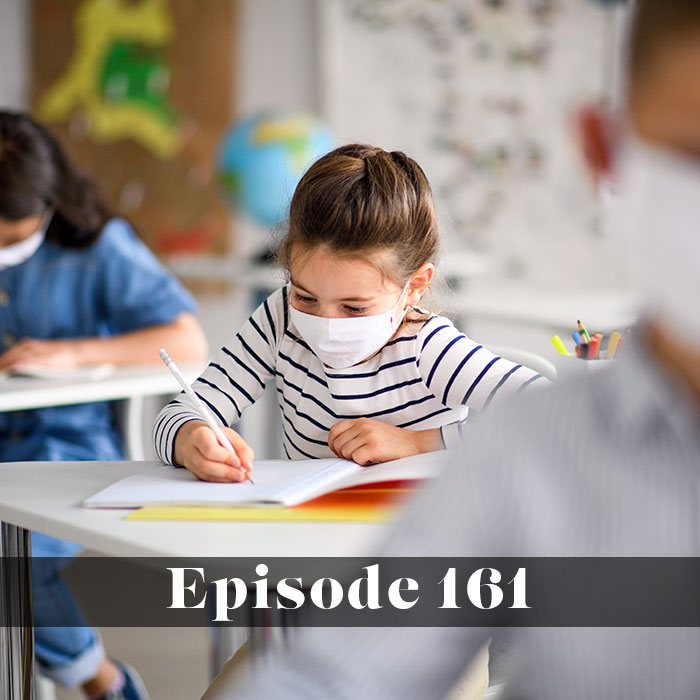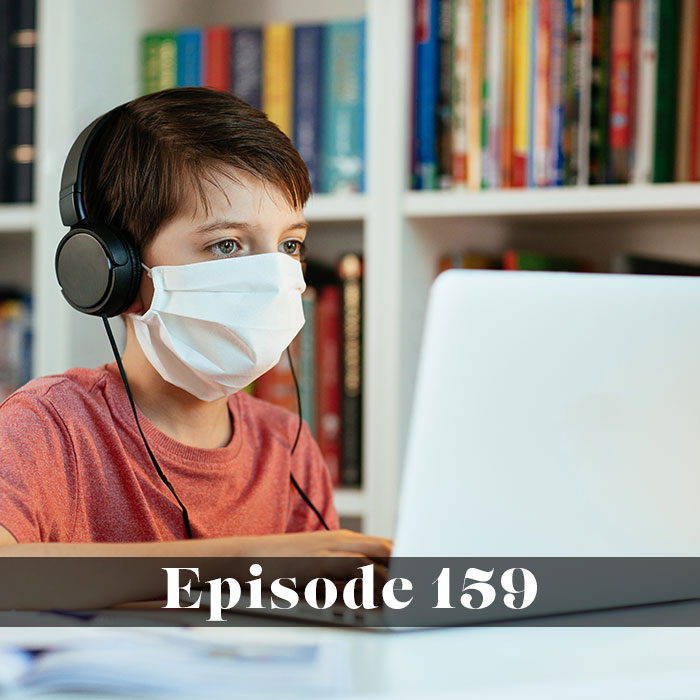This episode of our podcast is the first in a 2-part series during which Joel Gagne and Carole Dorn-Bell discuss the looming financial crisis for schools.
Joel and Carole discuss how to best prepare for the looming financial crisis and what we can learn from the 2008 Great Recession.
The Looming Fiscal Crisis for Schools: Four Takeaways from 2008 Great Recession
This episode is the first of a two part series focusing on the looming fiscal crisis that public schools will be facing. This is something that’s fast coming down the track, we want you to be prepared. We reflect back on 2008 within the podcast.
Amid all of the shifts in processes that schools have made as a result of the COVID-19 pandemic, the looming concern is the upcoming financial hit that schools will face.
“I hate to be a David Downer here, but it’s coming. There’s no way around it,” Joel says.
Sales taxes are down, income taxes are down and state aid will be down. People are feeling the financial pinch from the pandemic already.
“Right now there’s no real consensus in Washington on how to help the states,” Joel says. “There is going to be a fiscal crisis coming for schools, and they need to start talking about it.”
“I know this is tough right now for any educator to get their minds around,” Carole says. “The reality is that nobody knows what school’s going to be like when it opens in August or the fall.”
Carole also explains that when school does actually start in the fall, it doesn’t mean that school will look the same way a few months later.
“We just have no idea,” Carole says. “But, as we look to the financial conversation, I think it is worthwhile for our listeners to reflect back on the Great Recession of 2008.”
The two discuss how the current financial crisis is much larger in scale and much more immediate than the 2008 recession was, especially for schools.
First, they mention that any schools that had any sort of issue on the ballot in 2008 and the years that followed saw some of the lowest passage rates. It was also a stunning time for renewal issues; they think schools can expect more of the same financially this time around.
Joel explains that the schools that were able to pass issues during the Great Recession were the schools successfully having the conversation bluntly regarding the need for the community’s financial help.
“The ones that had the conversation a year out… those are the ones who had success,” Joel says.
Carole brings up that taxpayers are stakeholders, and schools need to constantly be having that conversation with their community about their financial picture.
Secondly, smart districts appropriately reflected the austerity that was felt by taxpayers during the Great Recession. Successful schools were sensitive about everyone’s financial picture.
Joel said that communicating with communities in simple terms that everyone can understand, such as explaining the need to turn the heat down in schools to save on costs, helped districts connect with their communities.
They both agreed it’s important to meet the community where they are when it comes to effective communication, especially during a recession.
Thirdly, a lot of districts came out with planned budget cuts and reductions. They explained how much harder the cuts would be if the levy issue didn’t pass on the ballot.
Joel discusses the importance of polling to understand where the entire community is.
Finally, Carole mentions that they saw a lot of contract negotiations that included zero or near-zero increases for several years following the Great Recession.
While both Carole and Joel agree that it’s a grim outlook with the looming financial crisis for schools, we can learn from 2008 and use the lessons as we create our communications plans going forward.
Joel does say that school districts survived 2008, and they’ll survive this crisis, too. He mentions that schools have been good fiscal stewards and have healthier cash balances available during this recession.
“When times get tough, people start to look at the school district and say things like, ‘Why are those teachers making all that money? Why are those administrators making all that money?’” Joel explains. “When the bust times happen, this is when the knives come out from certain segments of the community that are upset.”
If you start talking and preparing for the looming financial crisis for schools now, the pain won’t be as bad for the school district.
Carole says that the biggest difference from now and 2008 is that it took about 18 months for the recession to really hit schools.
“With unemployment as it is right now, I think we’re going to see the impact of this financial crisis hit much sooner,” Carole says.
Joel says that now is the time for school districts to decide how to position themselves.
Join us for the second installment in this series to learn how school districts can best prepare and position themselves for the looming financial crisis.
Got a question or topic you’d like covered in an upcoming We Love Schools podcast? Email us at info@weloveschoolspodcast.com
First time listening to We Love Schools? Learn more about our weekly podcast.
Interested in learning more about how the Allerton Hill Communications team can help your school? Contact us today.






